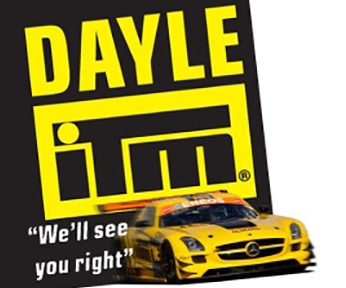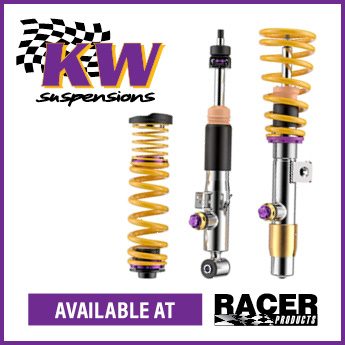I have competed as both a driver and an entrant for more years than I care to remember. During this time, I have witnessed the rise and fall of MotorSport New Zealand [MSNZ] as a relevant organisation in New Zealand motorsport.
Sadly MSNZ has failed to keep up with the rapidly changing economic and social landscape. A prime example of that is the failure of its own Premier National Touring Car Championship category over the last decade.
Further, the recent embarrassing failure of their new NZTCR touring car championship is a classic case of the organisation failing to do due diligence before purchasing the commercial rights to TCR. Had they ‘locked in’ the relevant car manufacturers support prior to taking what amounts to a “leap of faith” things might have been very different.
In the first instance, there had to be a very compelling reason why TCR car owners would commit to running the car that they purchased for running in the SIERDC/NIERDC Endurance series, in a costly NZTCR sprint race series-against elite professional drivers. MSNZ offered no such reason other than you could become the NZ Touring Car Champion, in a series that had no TV coverage, nor public profile, and as such, was doomed to fail.
In stark contrast, Toyota NZ has proven that by owning and financing its own Gazoo branded race car categories, it enjoys success under the auspices of a National Championship, which somehow MSNZ think they own, despite there no longer being a contract between the parties?
The question that needs asking is, is there life after Toyota?
Can it be that the ageing Toyota 86 series is now New Zealand’s de facto ‘Premier Touring Car Series, it would certainly seem so?
However, the “Elephant in the room” is, car companies are notoriously fickle in their commitment to any form of motorsport, and Toyota is no exception.
With Speedworks current contract ending at the conclusion of the summer season, MSNZ tendered the promotional rights to its National Championship Categories some 6 months ago. If MSNZ seriously believes their National Championship are asset’s of value, as opposed to a liability, this demonstrates just how far removed the organisation is from commercial reality.
It’s common knowledge that MSNZ only received 2 tenders, one from the incumbent, Speedworks, and one from Brendon White, who promotes the NZ drift series. Within the tender document, MSNZ seeks to dictate that their Championship categories have to be run, [regardless of cost] in both the North and South Island, and or, are commercially non-promotable.
Take the National Formula Ford Championship, a vital “feeder series” whose competitors in the main cannot afford to race in a national,inter-island series. As a result, only 2 or 3 front runners in each island will run in the one South Island race, and conversely, the one North Island round to win the National Championship.
In today’s user pays society, it’s money that talks and MSNZ are yet to understand that simple fact. Geoff Short of Speedworks accepts that there will be little to no spectator revenue from his events, other than corporate hospitality, and plans accordingly. The growth of “Professional Sport”, including various motorsport categories worldwide, demonstrates that money is the one essential element, and Short, to his credit, understands that, much to MSNZ chagrin.
The fact is that if you don’t have money or access to the same, you no longer control your destiny. The current NZTCR shambles is a classic example of the lack of commercial wisdom within MSNZ.
A recent MSNZ media release suggested that they could run a four-round Championship NZTCR 1-hour race, within two each of SIERDC’s and NIERDC’s endurance race meetings. However, unless SIERDC changes their long-held rule about not allowing Elite drivers to run in their one-hour races, that’s simply not going to happen. At this point in time, neither SIERDC nor NIERDC have so far had any formal request to consider how the MSNZ proposal might work.
Today, MSNZ finds itself with few income streams, principally due to the painful and costly realisation that it can no longer operate above the law of the land concerning anti-competitive behaviour. Compounding that fact is that recent New Zealand Government Sports Ministers have shown a complete lack of interest in motorsport, which has eroded any relevance MSNZ once had as a body of political influence.
The failure of the organisation to understand how best to leverage its sphere of political power is a testament to its incompetency as an elected body.
MSNZ also needs to accept that a well funded commercial organisation now owns three permanent motor racing circuits and will not be dictated to by anybody.
Therein lies the dilemma; MSNZ is no longer relevant, at least in terms of being a professional sporting body. Therefore it needs to accept that it’s a regulatory body only, totally dependant on licence fees and levies for its existence.
In relation to its National Championship categories, MSNZ needs to either lead, follow or get out of the way. It demonstrably lacks the resources to lead, and so has no option but to get out of the way and follow. At best it should encourage and facilitate the establishment of commercial entities such as Toyota Gazoo, Speedworks etc to develop a true championship category, and simply click the ticket along the way.
MSNZ biggest challenge is that, by and large, competitors today want to have fun with their friends and family, not to be “put through the wringer” with technical protest and tech shed inspections at the end of the day’s racing. Proof of this is the successful endurance series races of the SIERDC and NIERDC clubs, which have simple rules and regulations and enjoy a beer or two at the end of the day.
Yes, there is a place for technical regulations and the policing of same. However, it needs to be self-regulating by the category itself, unless a competitor wishes to resort to MSNZ’s judicial process.
In conciliation with their championship category competitors simple, sensible, easily policed Sporting Rules and Regulations are the keys to the all-important competitor coming back year after year.
In summary, MSNZ needs to remove itself from all commercial risk, divest itself from TCR, and focus entirely on how best to serve and preserve its customer base without fear or favour.















